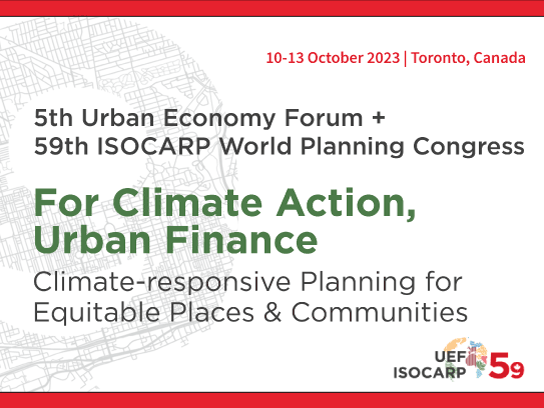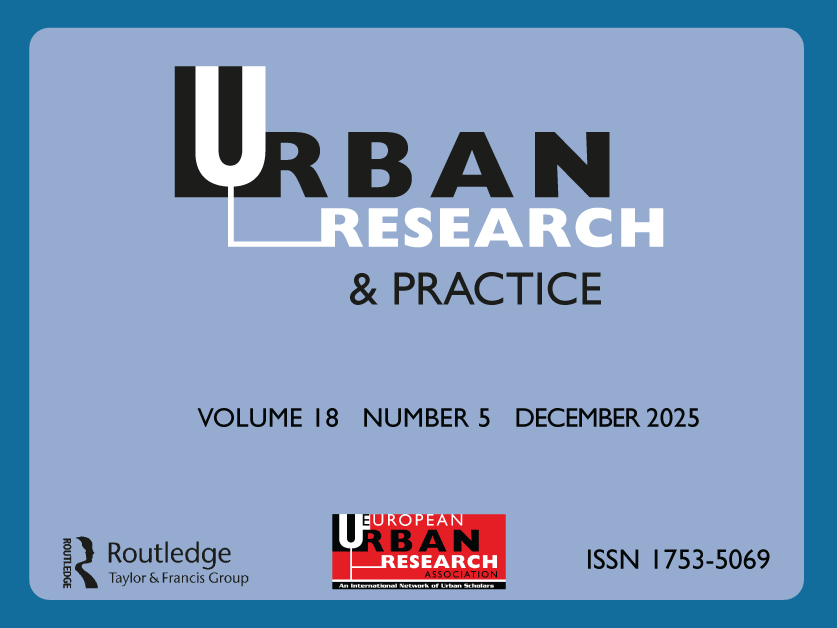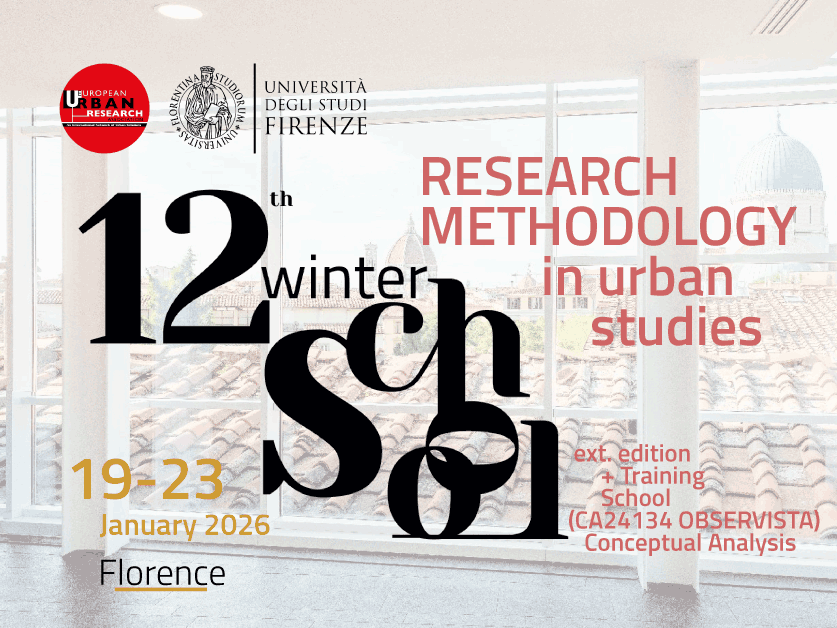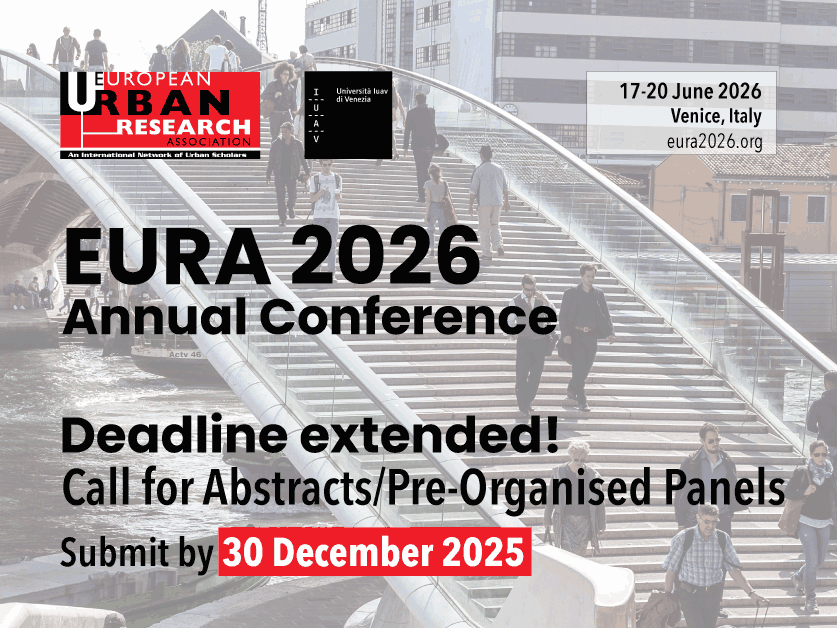
#55 Cities and artificial intelligence
30/06/2023
EURA Conversations Summer Break ’23
17/07/2023
Topic:
For Climate Action, Urban Finance
Climate-responsive Planning for Equitable Places & Communities
Overview:
Cities are homes for over 50% of the world's population, consuming two-thirds of global energy and accounting for 70% of global emissions. Cities serve as financial centres and contribute [up to/around] 80% of the global GDP, but cities continue to face social, economic, and environmental development challenges. Many countries are urbanising rapidly without adequate urban governance, fiscal resources, urban policies, and integrated planning, preventing effective and efficient use of resources for sustainable development. There are also shrinking cities, mining and post-mining regions and towns where urban sustainability should be reinvented, considering just transitioning to the green economy and adapting innovative, nature-based solutions and adequate fiscal responses. Climate crises and financial constraints have become additional challenges for sustainable development in cities worldwide, requiring the rethink of policymaking, planning, investment, and development of integrated climate-responsive urban strategies. Thereby, there is a need for better policies, planning solutions and investment in the long-term future of cities to provide and maintain high-quality living conditions for all and stop financial flows historically supporting non-sustainable outcomes such as urban sprawl and real-estate development models leading to increased social and economic inequality.
The 27th session of the Conference of the Parties (COP 27) to the United Nations Framework Convention on Climate Change (UNFCCC) emphasised the critical role of cities in global climate change and called for finding enabling innovative solutions to merge policy making, planning and finance efforts for achieving urban sustainability and resilience. The UN-Habitat's Cities and Climate Change Initiative (CCCI) calls for supporting cities in low- and middle-income countries lacking policymaking, planning capacities and financial resources to respond to the negative impact of climate change. To create the foundations for a collaborative and participatory response to the climate crisis in cities and regions, the Urban Economy Forum (UEF) and the International Society of City and Regional Planners (ISOCARP) jointly organise the 5th Urban Economy Forum (UEF5) and 59th ISOCARP World Planning Congress (WPC59) as the integrated conference "For Climate Action, Urban Finance. Climate Responsive Planning for Equitable Places & Communities".
ISOCARP – a society of professional planners contributing to knowledge creation while combining a unique triple perspective in theory, policy and practice – and UEF – a distinctive platform to disseminate knowledge through establishing dialogue among key stakeholders – will complement each and work together to make policymaking, planning and climate finance beneficial for all. After 45 years since the Montreal congress "Evolution of Urban & Regional Planning with Regard to Changes in Society", ISOCARP is back to Canada to continue looking for innovative ways of tackling climate change. Inspired by the rich experience of ISOCARP congresses in the past[1], the 59th congress is an excellent chance to discuss challenges for and possible synergy between policy making, planning, climate action and urban finances.
As an institutional member of ISOCARP, the UEF is the global essential partner to re-establish the links between policy making, planning, and economic development. For the past four years, the UEF has annually convened hundreds of urban partners and experts, city managers, mayors, academics, governmental organizations and non-governmental organizations, financial institutions, local communities, and other stakeholders to engage in discourses on the topic of urban economy and finance. The last year's UEF4 on "Sustainable Urban Finance" aimed to examine financial and banking institutions' mandates and operations to identify commonalities concerning urban resource management to achieve a sustainable urban economy and share innovative opportunities.
The joint UEF5+WPC59 event aims to bring multiple stakeholders together, particularly professional planners, policymakers, city leaders, government, academia, financial institutions, entrepreneurs, and civil societies, to elaborate on the following four thematic areas and respective track of focus:
- Finding synergies and relevant solutions for attracting climate finance and transforming it into locally demanded social, economic, and environmental values for city residents not leaving anyone behind.
- Leveraging multi-disciplinary, multi-sector, and multi-level collaboration for better urban governance, balancing public and private, global, and local urban development needs.
- Investigating new ways of proactive planning and effective investment by combining the use of evidence with the foresight and visioning for transforming cities and communities into economically prosperous, healthy, environmentally friendly, socially just, inclusive, and resilient places.
- Exploring technologies, not historically linked to planning practice and urban finance, by exposing innovative linkages and synergistic opportunities of using big data, algorithms, and artificial intelligence.
EURA highlights
Among the panel of experts of the Joint Conference Steering committee:
- Li Fan from Technical University of Berlin (EURA individual member)
- Henk Bowman from METREX (EURA institutional member)








